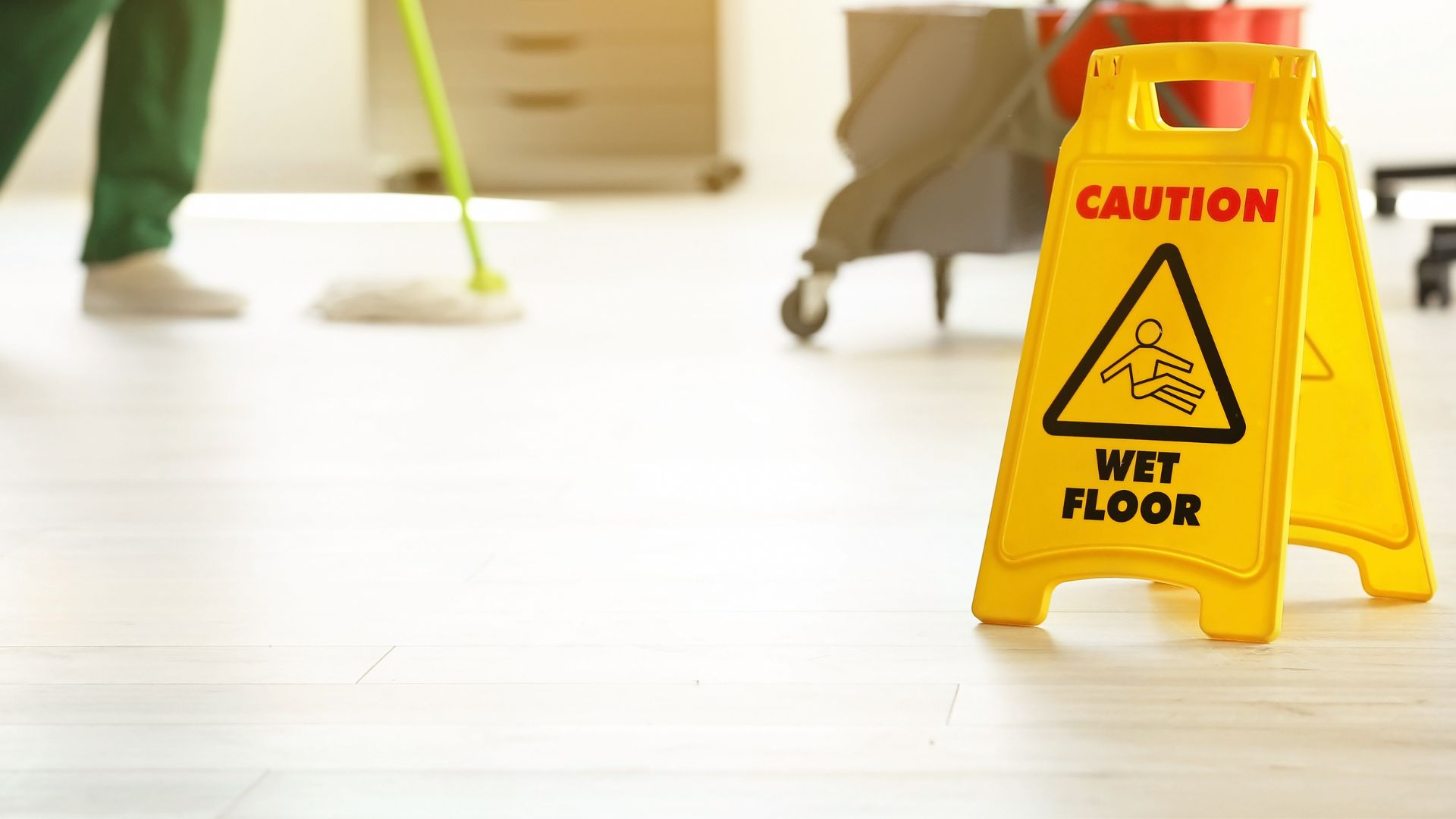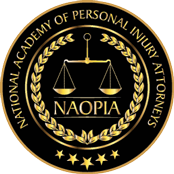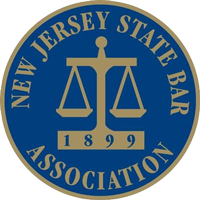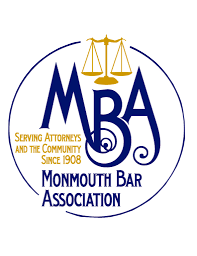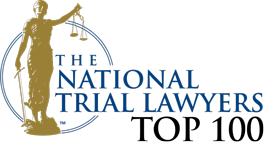Monmouth County NJ Slip and Fall Lawyers
Law Offices of Michael S. Williams – Proudly Serving New Jersey Residents for nearly 20 Years
Property owners must maintain their premises for safe use and prevent defective or dangerous conditions. Property owners could face liability for accidents and injuries when they fail to meet their duty of care.
You should contact a lawyer immediately if you have been injured in a slip and fall.
Our offices are conveniently located in Tinton Falls and New Brunswick, New Jersey and Michael regularly appears in court representing the injured in not only Monmouth and Middlesex County, but the surrounding counties of Ocean, Atlantic, Mercer, Union, Essex and Morris.
What Are Common Causes of Slip and Fall Accidents?
Some common causes of New Jersey slip and fall accidents include:
- Cluttered facilities: Inventory, boxes, equipment, shopping carts, products, and other items cluttering walkways, aisles, and other accessible areas pose significant accident risks.
- Snow and ice: Many property owners do not remove snow and ice from the sidewalk or stairs within a reasonable period.
- Slippery floors: One of the most common reasons for slip and fall accidents is slippery floors due to rain, snow, ice, or spills.
- Uneven surfaces: Loose or damaged floor tiles or floorboards, bunched or ripped carpets or mats, cracked sidewalks or parking lots, or sudden transition from different floor materials can all create tripping hazards.
- Open gaps: Divots, open gaps, and holes in parking lots, lawns, or elsewhere pose a fall risk, especially when covered by snow or leaves.
- Low lighting: Inadequate, broken, or missing lighting in parking lots, stairwells, passageways, parking garages, and other dark areas can pose a tremendous danger.
Where Do Slip and Fall Accidents Most Commonly Occur?
Slip and fall accidents can occur anywhere there is foot traffic, some of the most common being:
- Airports
- Apartment buildings
- Construction sites
- Grocery stores
- Hotels
- Medical facilities
- Office buildings
- Parking garages
- Parking lots
- Resorts
- Restaurants
- Sidewalks
- Shopping malls
- Subway stations
- Swimming pools
- Warehouses
What Types of Injuries Are Common in Slip and Fall Accidents?
Slip and fall accidents may not seem dangerous, but they can cause severe and life-altering injuries or disabilities, including:
- Back and spinal cord injuries
- Broken bones
- Bruising
- Burns
- Concussions
- Cuts and lacerations
- Neck and shoulder injuries
- Organ damage
- Sprains, strains, and tears
- Traumatic brain injuries
Who Can Be Liable for a Slip and Fall Accident?
Determining liability for a slip and fall accident can be difficult, and the burden of proof is on the injured. If proven, the property owner could be accountable for your losses, such as medical bills and lost wages.
Property owners in New Jersey must ensure their premises are safe and hazard-free. To prove the property owner is responsible for the dangerous condition, you must show the following:
- The property owner knew or reasonably should have known that the dangerous situation existed.
- The owner had a reasonable time to correct the dangerous situation or alert visitors to the risks but failed to do so.
- You suffered injuries as a result of this failure.
Can I Sue a Property Owner After a Slip and Fall?
That depends entirely on what occurred. Property owners and managers must exercise reasonable care in maintaining the property for the safety of almost all visitors. This can be from fixing broken sidewalks or potholes in the parking lot to removing snow and ice. When assessing negligence and whether the injured deserves compensation, we must examine why you were on the property (visitor status) and the property condition (what caused the fall). The highest duty of care is owed to a business invitee, who is someone welcomed inside or onto to property for commercial purposes. The lowest is owed to an adult trespasser. Even then, property owners cannot act intentionally or recklessly by creating or refraining from willfully injurious acts. A higher duty of care is owed to children.
What Is the Open and Obvious Doctrine?
One of the commonly used defenses property owners use against liability is that the defective condition was “open and obvious.” Generally, this means that a reasonable person would have quickly discovered the property defect under the same circumstances and recognized and avoided the risk.
Due to the state’s comparative negligence laws, the open and obvious doctrine is essential in New Jersey. Under comparative negligence, each party is assigned a percentage of fault for the accident and subsequent injuries, and you may be entitled to seek compensation if your percentage of fault is less than 50 percent.
Additionally, your percentage of negligence will affect the compensation you can seek. For instance, if you are found to be 20 percent responsible for the accident and your injuries, the total compensation amount will be reduced by 20 percent.
The statute of limitations for filing a personal injury claim in New Jersey is two years from the accident date.
What Should I Do After a New Jersey Slip and Fall Accident?
Your actions after an accident can significantly affect your personal injury claim. Following a slip and accident, you should do the following:
- Report the accident to a manager or property owner.
- Document the scene and conditions that led to the accident and injuries.
- Gather contact information and statements from witnesses.
- Seek medical attention within 48 hours following the accident.
- Maintain all documents and correspondence related to the accident and injuries.
- Consult a lawyer to help you navigate the system.
How Can a New Jersey Slip and Fall Lawyer Help Me?
The American Bar Association reports that three out of five people choose to handle their case in civil court but are disadvantaged without a lawyer. Ways an experienced personal injury lawyer can help include but are not limited to:
- Legal advice: A lawyer can advise you regarding the specifics of your case, explain your legal options, and recommend appropriate actions for seeking compensation.
- Prove negligence: Proving whether the property owner, business, or government entity of the premises where your accident occurred can be difficult. You must be able to prove which party is at fault. A lawyer can investigate and analyze your accident and gather the necessary evidence to prove negligence.
- Calculate damages: Determining the amount of compensation you are owed is a challenging task. Your lawyer has extensive experience assessing and calculating your current and future damages.
- Negotiate a settlement: Agreeing out-of-court is always an ideal solution whenever possible. An experienced personal injury lawyer is a skilled negotiator who knows and can anticipate insurance companies’ tactics to minimize their losses.
- Represent you in court: Should the case go to trial, your lawyer can advocate on your behalf and protect your rights.
How Much Do Injury Attorneys Charge?
We offer legal representation on all non-workers’ compensation injury matters on a contingency fee basis. So, there is no attorney fee unless you are compensated for your injuries. Workers’ compensation, while also on a contingency fee basis, is governed by the Workers’ Compensation Act and its rules differ. Fees attorneys are allowed to charge are set by the New Jersey Court rules.
Attorneys shall not contract for, charge, or collect a contingent fee in excess of the following limits pursuant to paragraph (c):
- 33⅓% on the first $750,000 recovered;
- 30% on the next $750,000 recovered;
- 25% on the next $750,000 recovered;
- 20% on the next $750,000; and
- on all amounts recovered in excess of the above by application for a reasonable fee in accordance with the provisions of paragraph (f) hereof; and
- where the amount recovered is for the benefit of a client who was a minor or mentally incapacitated when the contingent fee arrangement was made…shall not exceed 25%.
- (d) The permissible fee provided for in paragraph (c) shall be computed on the net sum recovered after deducting disbursements in connection with the institution and prosecution of the claim…
If you have been injured in an accident in New Jersey, you may be dealing with severe injuries, medical expenses, and other financial losses. You and your family might feel overwhelmed and frustrated. You should speak with a lawyer as soon as possible.
New Jersey Slip and Fall Lawyers at the Law Offices of Michael S. Williams Help Injured Clients Seek Compensation From Negligent Property Owners
If a property owner’s negligence has injured you, speak with our experienced New Jersey slip and fall lawyers at the Law Offices of Michael S. Williams. Call 732-351-2800 or contact us online to schedule a free consultation. With offices conveniently located in Tinton Falls and New Brunswick, New Jersey we serve clients in Monmouth and Middlesex County and throughout the state.

